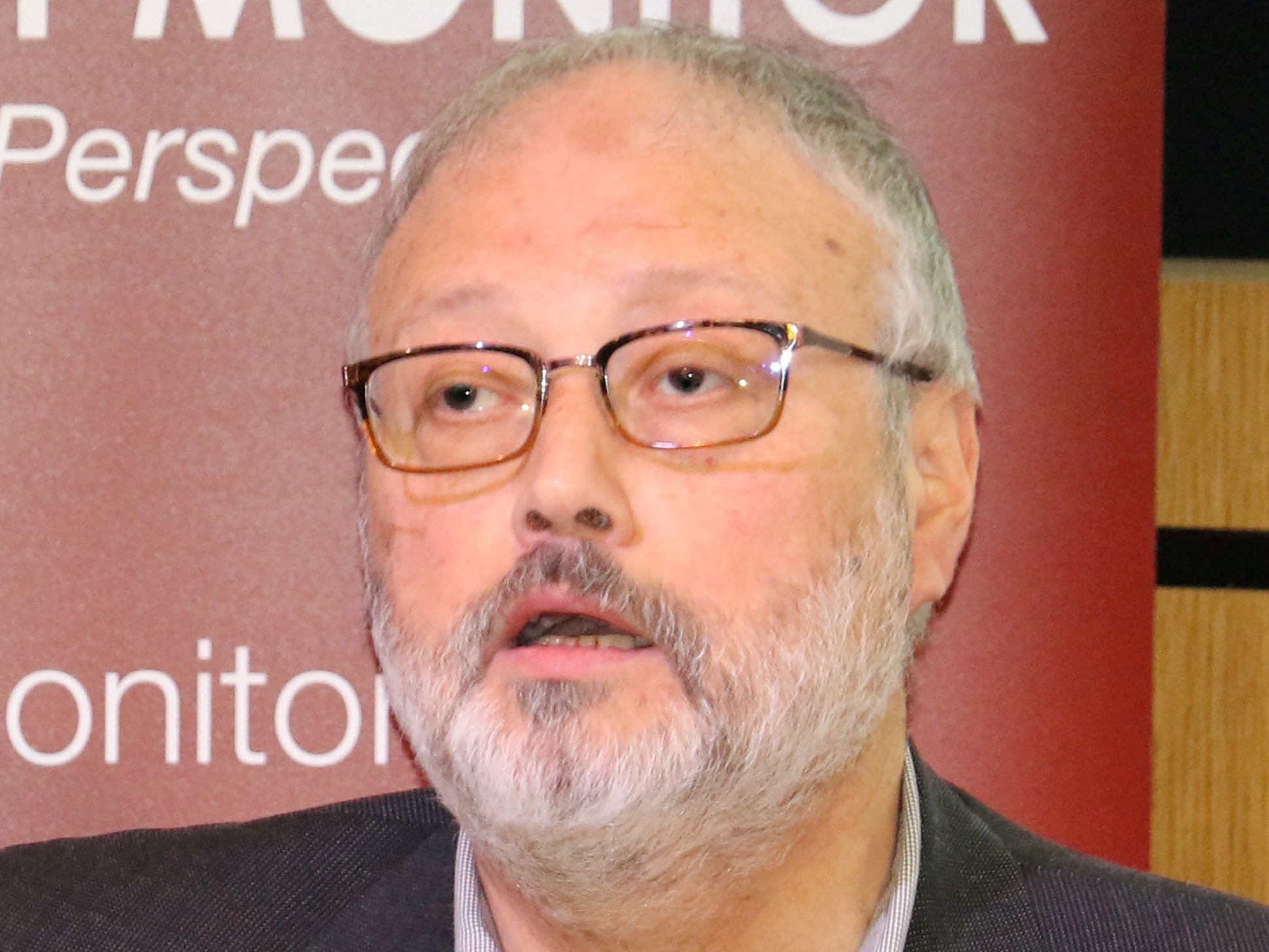
Turkish police have found “certain evidence” during their search of the Saudi Consulate showing that Saudi journalist Jamal Khashoggi was killed there, an official has said.
The official did not provide details on the evidence that was recovered during the search at the diplomatic mission that ended early this morning.
Turkish officials say Saudi agents killed and dismembered the Washington Post columnist at the Saudi Consulate in Istanbul on 2 October.
Saudi Arabia previously called the allegation “baseless”, but US media reports suggest the Saudis may soon acknowledge Khashoggi was killed there, perhaps as part of a botched interrogation.
The US secretary of state met today with Saudi Arabia’s King Salman and his son Crown Prince Mohammed bin Salman.
Mike Pompeo smiled and shook hands with both men, who warmly greeted him just hours after a Turkish forensics team finished a search inside the Saudi Consulate, looking for evidence of the writer’s alleged killing and dismemberment.
Police plan a second search at the Saudi consul’s home in Istanbul, a Turkish Foreign Ministry official said, where leaked surveillance footage show diplomatic cars travelled to shortly after Khashoggi’s disappearance.
The Saudi consul to Istanbul left for Saudi Arabia this afternoon, Anadolu news agency reported.
Saudi foreign minister Adel al-Jubeir greeted Pompeo when he landed in Riyadh.
Soon after, Pompeo arrived at a royal palace, where he thanked King Salman “for accepting my visit on behalf of President Trump” before the two went into a closed-door meeting.
Pompeo then met a smiling Prince Mohammed, the 33-year-old heir apparent to the throne of the world’s largest oil exporter.
Khashoggi fled Saudi Arabia and took up a self-imposed exile in the United States after the prince’s rise.
“We are strong and old allies,” the prince told Pompeo as journalists watched.
“We face our challenges together, the past, the day of, tomorrow.”
Trump, who dispatched Pompeo to speak to the monarch over Khashoggi’s disappearance, said yesterday after talking with King Salman that the slaying could have been carried out by “rogue killers”.
Trump provided no evidence but that statement potentially offers the US-allied kingdom a path out of a global diplomatic firestorm.
“The king firmly denied any knowledge of it,” Trump said yesterday.
“It sounded to me like maybe these could have been rogue killers.
“I mean, who knows? We’re going to try getting to the bottom of it very soon, but his was a flat denial.”
However, left unsaid was the fact that any decision in the ultraconservative kingdom rests solely with the ruling Al Saud family.
“The effort behind the scenes is focused on avoiding a diplomatic crisis between the two countries and has succeeded in finding a pathway to deescalate tensions,” said Ayham Kamel, the head of the Eurasia Group’s Mideast and North African practice.
“Riyadh will have to provide some explanation of the journalist’s disappearance, but in a manner that distances the leadership from any claim that a decision was made at senior levels to assassinate the prominent journalist.”
CNN reported that the Saudis were going to admit the killing happened but deny the king or crown prince had ordered it, which does not match what analysts and experts know about the kingdom’s inner workings.
The New York Times reported that the Saudi royal court would suggest that an official within the kingdom’s intelligence services, a friend of Prince Mohammed, had carried out the killing.
According to that reported claim, the crown prince had approved an interrogation or rendition of Khashoggi back to Saudi Arabia, but the intelligence official was tragically incompetent as he eagerly sought to prove himself.
Both reports cited anonymous people said to be familiar with the Saudi plans.
Saudi officials have been in and out of the consulate building since Khashoggi’s disappearance without being stopped.
Under the Vienna Convention, diplomatic posts are technically foreign soil that must be protected and respected by host countries.
Turkey has wanted to search the consulate for days.
Permission apparently came after a late Sunday night call between King Salman and Turkish President Recep Tayyip Erdogan.
The Turkish inspection team included a prosecutor, a deputy prosecutor, anti-terror police and forensic experts, the state-run Anadolu news agency reported.
Certain areas of the consulate were to remain off-limits, although officials would be able to inspect surveillance cameras, Turkish media reported.
What evidence Turkish officials gathered at the consulate remains unknown, though Erdogan told journalists that police sought traces of “toxic” materials and suggested parts of the consulate had been recently painted, without elaborating.
Khashoggi has written extensively for the Washington Post about Saudi Arabia, criticising its war in Yemen, its recent diplomatic spat with Canada and its arrest of women’s rights activists after the lifting of a driving ban for women.
Those policies are all seen as initiatives of Prince Mohammed, the son of King Salman, who is next in line to the throne.
Prince Mohammed has aggressively pitched the kingdom as a destination for foreign investment.
But Khashoggi’s disappearance has led several business leaders and media outlets to back out of the upcoming investment conference in Riyadh.
Trump previously warned of “severe punishment” for the kingdom if it was found to be involved in Khashoggi’s disappearance, which has spooked investors.
Trump’s warning drew an angry response on Sunday from Saudi Arabia and its state-linked media, including a suggestion that Riyadh could wield its oil production as a weapon.
The US president has been after King Salman and Opec to boost production for weeks to drive down high crude oil prices, caused in part by the coming re-imposition of oil sanctions on Iran after the US withdrawal from that country’s nuclear deal with world powers.
Picture: Middle East Monitor/Handout via Reuters
Email pged@pressgazette.co.uk to point out mistakes, provide story tips or send in a letter for publication on our "Letters Page" blog
